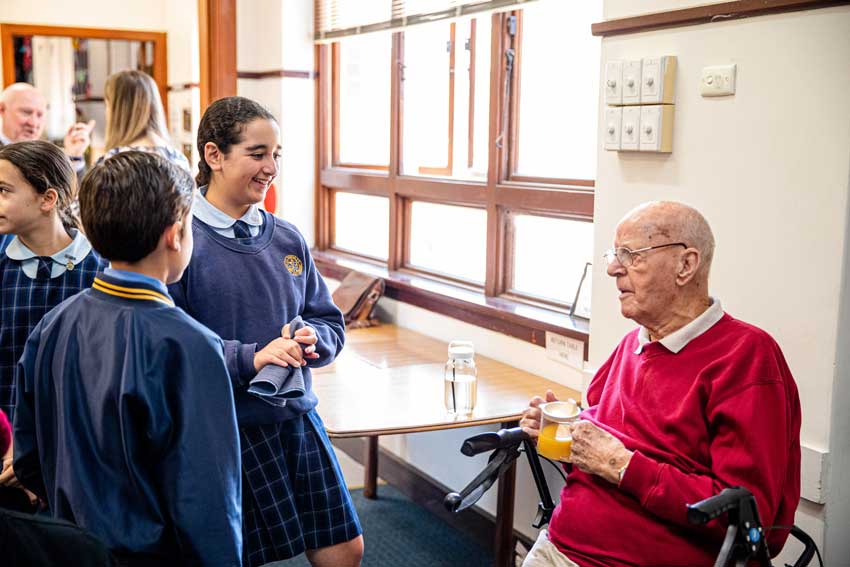
While the coronavirus outbreak has led to increased levels of anxiety for many, the crisis has also inspired heart-warming acts of humanity and compassion.
At one Queensland school, students are demonstrating this to their elderly community through a program that connects them using the ‘face to face’ communication benefits of video conferencing.
The program – called Intergenerational Learning – is being used by Year 6 students from Our Lady Queen of Peace Primary (OLQP) Greystanes to build meaningful connections and learning with elders living in an aged care home.
According to the facility manager of Southern Cross Care, the elders are now happier, eating better, sleeping better, socialising more, are less anxious and less depressed.
OLQP principal, Michael Hopley, said the school held its first video call in Term 3 last year.
“Now we have up to 30 students from Year 6 who conduct regular calls with the elders four to five times a term," Hopley said.
"Topics are based on the school curriculum and are aligned with current assessment tasks".
Greg Cronan, Griffith University alumni and Intergenerational Care research team member, leads the program, which began as an academic research project and data gathering exercise.
“My passion has been to connect students and the elderly for learning interactions which are mutually meaningful,” Cronan said.
“This has resulted in huge benefits for both age groups. The pastoral care benefits are enormous for the elders and healthcare staff at the aged care home in addition to the students, their parents and teachers.”
Topics are chosen and shared with the students, the elders and aged care staff to enable all participants to prepare a few days before each video call and ensure time for learning is used effectively. The aim is to create a free-flowing conversation with an exchange of ideas.
The set up is as simple as dialing a video call from a laptop and connecting it to a TV so the whole class and elders at the aged care home can see each other. Cronan also provided integrated microphones with speakers to ensure each group heard each other clearly.
Hopley said the outcomes have been "extraordinary"
“Students have become more confident in speaking and more empathetic in understanding feelings and emotions," he said.
"Their vocabulary has increased as has their ability to ask open ended, probing questions. Many have developed better relationships with their own grandparents and family".
Hopley said staff at the facility are also happier.
"The whole experience has been a fun and enjoyable learning experience for both age groups," he said.
The school currently does four to five sessions a term, but would like to do these more often and expand the program to other Year groups.
This article is the third in an ongoing series of good news stories focused on how principals, teachers and students are showing compassion, courage and humanity during this challenging and uncertain time.


